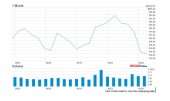 The end of the Supreme Court’s latest term made a lot of news. There were lots of politically contentious decisions: two biggies just on the death penalty; one on gerrymandering; one on a tug-of-war between Congress and the executive branch over whether the U.S. should recognize Jerusalem as part of Israel; the latest litigational assault on Obamacare, and … you may have heard about the gay marriage ruling somewhere.
The end of the Supreme Court’s latest term made a lot of news. There were lots of politically contentious decisions: two biggies just on the death penalty; one on gerrymandering; one on a tug-of-war between Congress and the executive branch over whether the U.S. should recognize Jerusalem as part of Israel; the latest litigational assault on Obamacare, and … you may have heard about the gay marriage ruling somewhere.
Amid all those bombs going off, even careful observers may have missed the final resolution of at least the first stage in the long-standing dispute between digital titans Google and Oracle.
On June 29, the high court declined to take an appeal from the appeals court’s decision. Thus: the appellate court’s ruling, that Java application program interfaces are copyrightable, stands. Oracle, whose property interest is thereby affirmed, put out a statement expressing its satisfaction, calling the Supreme Court’s non-decision decision “a win for innovation and for the technology industry that relies on copyright protection to fuel innovation.”
Both sides in the dispute of course see themselves as defending the cause of innovation, because property rights in the consequences thereof can be a double-edged sword, obstructing on the one side what they reward on the other.
The significance of the case extends beyond the operations of these two companies, impressively significant as that alone could make it. Since Java APIs are now copyrightable, it is a safe bet that APIs more generally are copyrightable.
This is the end of the “first stage” only, because the consequence of the Supreme Court’s action is that the matter goes back to the trial court. Google will have a number of defenses at trial, and the most important of these from the point of view of the potential macro-economic effects of the legal system, is the argument that Google has only made a protected “fair use” of Oracle’s property. That will be a second stage worth watching.
For the record, Google’s stock price did not react dramatically on January 30th. As the chart above indicates, It had been on a decline since June 23d, when it touched a recent high of $563 a share. The closing price June 30th was $540.04.
Nor did Mr. Market respond dramatically to what must be presumed to be good news for Oracle. That one-month chart is below. Any effect of this news on its stock price was likely swamped by the continuing market reaction (largely negative) to the news a few days before that Oracle is going to compete head-to-head with Amazon in the cloud computing market.
The Purpose of Copyright Law
The essential purpose of copyright law is (as the 9th Circuit put it in a 193 decision), to “encourage the production of original works by protecting the expressive elements of those works while leaving the ideas, facts, and functional concepts in the public domain….” The idea itself – in this case the hierarchically arranged command structure of the Java platform and its APIs – cannot be copyrighted. Further, when the idea and its expression walk into bar, there is some danger they will become inextricably intertwined. In such a case, neither of them can properly be subjected to copyright. My own view, then, is that in the case of APIs the expression of an idea and the idea itself are drunkenly intertwined.
But of course the Supreme Court plainly doesn’t pay much attention to me. So instead of going back over that ground, I’ll offer a little history, and a sense of the continuing significance of this case. The issue, really, is interoperability. It is whether the digital world is going to divide into competing fiefdoms, or grow together as one noosphere.
What there is no question about is that software developers at Sun Microsystems revolutionized computer coding beginning in 1996 with the release of the Java platform, which was valuable precisely because of the promise if interoperability, its underlying philosophy of “write once, run anywhere.” Also, it is undisputed that Oracle acquired Sun, and whatever property rights it had, in 2010.
Everything else one might say remains up for grabs.



